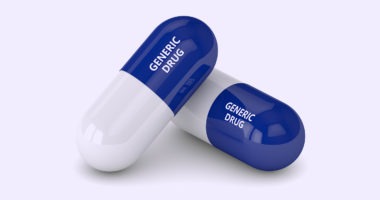Digital Strategies in Sourcing and Supply Management
New digital tools hold the potential to transform the pharma customer–supplier relationship, but how? In DCAT Sharp Sourcing LIVE, a livestreamed webinar on Oct. 10, learn how artificial intelligence, the IoT, blockchain technology, and advanced analytics can be used in the pharma manufacturing value chain.
Transforming the pharma customer–supplier relationship
Digital technologies hold the potential to transform business functions, including how the supply of direct materials and products are managed. To gain a better understanding on the potential of digital technologies in supply management, the Drug, Chemical & Associated Technologies Association (DCAT), as part of DCAT Sharp Sourcing Live, the association’s livestreamed webinar series, will hold a webinar on October 10: Digital Strategies in Sourcing and Supply Management.
 |
|
Fidel Santos |
The webinar will feature Fidel Santos, Associate Partner, Digital Strategy & iX Practice, IBM, where he focuses on digitally reinventing his clients’ businesses with an emphasis on operations and supply chain. He is an expert in digital supply chain in the biopharmaceutical industry. He spent seven years in leadership roles in supply chain and manufacturing at Bristol-Myers Squibb. He was also a consultant with A.T. Kearney and PwC, where he advised leading life-sciences companies in strategy and operations.
Also featured will be Robert Handfield, PhD, the Bank of America University Distinguished Professor of Operations and Supply Chain Management at North Carolina (NC) State University and Executive Director of the Supply Chain Resource Cooperative. He also serves as the Faculty Lead for the Manufacturing Analytics Group within the International Institute of Analytics and is on the Faculty for Operations Research Curriculum at NC State University.
He is co-author of The LIVING Supply Chain: The Evolving Imperative of Operating in Real Time. This book was co-authored with Tom Linton, Chief Procurement and Supply Chain Officer, Flex, and Former Chairman of the Institute of Supply Management. Additionally, he has published more than 100 peer-reviewed journal articles.
Dr. Handfield has worked with more than 25 Fortune 500 companies and is considered a thought leader in the field of supply-chain management. He is an industry expert in the field of sustainable supply chains, supply management, market intelligence, and supplier development. He has spoken on these subjects across the globe at conferences/meetings in the US, Canada, Europe, Asia (including China, Korea, and Japan), Latin America, Azerbaijan and Turkey.
The webinar will examine several crucial issues, including how digital tools can be used to drive visibility and collaborative and integrated supplier networks. The webinar will also examine use cases in pharma supply-chain resilience for mitigating supply disruptions and ways to improve predictability in demand and supply planning and how challenges in clinical-trial-materials and commercial supply can be resolved.
 |
|
Robert Handfield, PhD |
To illustrate the growing importance of these technologies on an industry level, in June, Merck and Co. was selected by the US Food and Drug Administration (FDA), along with Walmart, IBM, and KPMG, to participate in a pilot program in support of the US Drug Supply Chain Security Act (DSCSA) to identify, track and trace prescription medicines and vaccines through the use of blockchain technology.
The program is intended to assist drug supply-chain stakeholders, including the FDA, in the electronic, interoperable system that will identify and trace certain prescription drugs as they are distributed in the US in the implementation of the DSCSA.
DSCSA, which was signed into law in November 2013, has staged implementation over a 10-year period and is designed to create a system that will facilitate the exchange of information (i.e., transaction information, transaction history, and transaction statement) at the individual package level about where a drug has been in the supply chain.
Under the pilot program, each company will bring individual expertise to create a shared permission blockchain network that allows real-time monitoring of products. The network is intended to reduce the time needed to track and trace inventory; allow timely retrieval of reliable distribution information; increase accuracy of data shared among network members; and help determine the integrity of products in the distribution chain, including whether products are being kept at the correct temperature. IBM, KPMG, and Walmart, the largest retailer in the US, have experience in implementing blockchain solutions to help enhance the safety and traceability of products. Walmart, for example, currently has blockchain pilots in pork, mangoes and leafy green vegetables.
The program is scheduled to be completed in the fourth quarter of 2019, with results expected to be published in an FDA DSCSA program report. After which, the projects participants will evaluate next steps.
A recent analysis by Gartner further outlines emerging technology trends that create and enable new experiences, leveraging artificial intelligence (AI) and other constructs to enable organizations to take advantage of emerging digital ecosystems. “Technology innovation has become the key to competitive differentiation. The pace of change in technology continues to accelerate as breakthrough technologies are continually challenging even the most innovative business and technology decision makers to keep up,” said Brian Burke, Research Vice President at Gartner, in commenting on the analysis.
Among the key trends noted by Gartner is the use of digital ecosystems to leverage an interdependent group of actors (enterprises, people and things) sharing digital platforms to achieve a mutually beneficial purpose. “Digitalization has facilitated the deconstruction of classical value chains, leading to stronger, more flexible and resilient webs of value delivery that are constantly morphing to create new improved products and services,” notes the report. Critical technologies to be considered include: DigitalOps, knowledge graphs, synthetic data, decentralized web and decentralized autonomous organizations.
The report also point to the use of advanced analysts. Advanced analytics comprises the autonomous or semiautonomous examination of data or content using sophisticated techniques and tools, typically beyond those of traditional business intelligence (BI). “The adoption of edge AI is increasing for applications that are latency-sensitive (e.g., autonomous navigation), subject to network interruptions (e.g., remote monitoring, natural language processing [NLP], facial recognition) and/or are data-intensive (e.g., video analytics),” said Gartner’s Burke. The technologies to track include adaptive machine learning (ML), edge AI, edge analytics, explainable AI, AI platform as a service (PaaS), transfer learning, generative adversarial networks and graph analytics.
Further information on the webinar, including how to register, may be found here.





